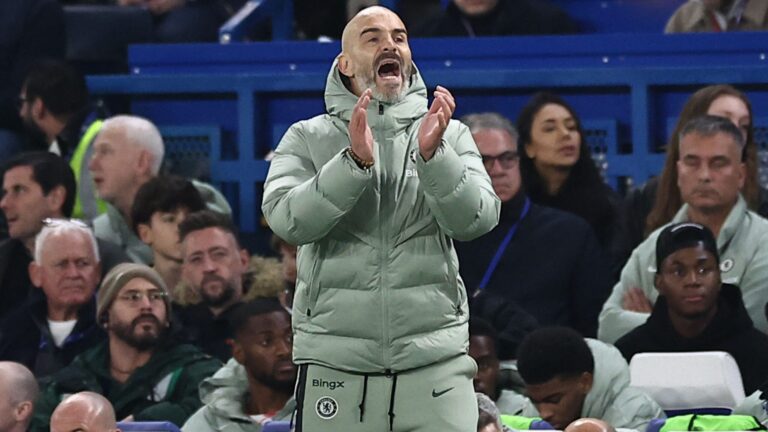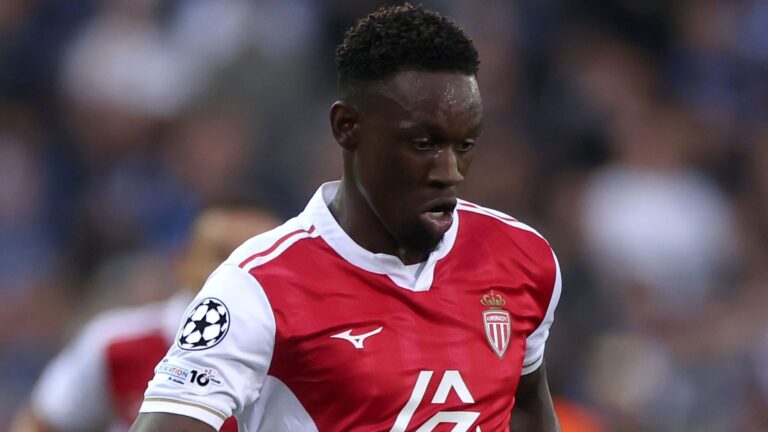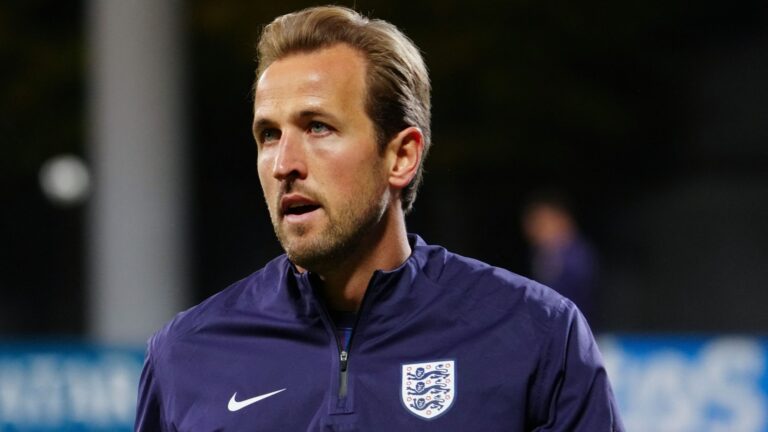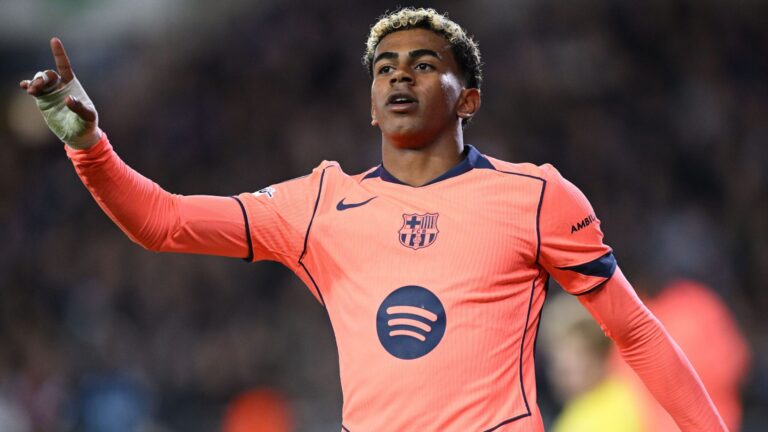Transforming Soccer Across Europe: The Surge of International Rivalries
In the dynamic world of soccer, the Iberian Super Cup and efforts toward global football expansion are driving intense discussions about groundbreaking tournaments that could redefine the game. As traditional domestic leagues increasingly intersect with worldwide initiatives, Porto’s leader André Villas-Boas has ignited innovative ideas by suggesting a unique Super Cup featuring premier teams from Spain and Portugal, all while navigating ongoing obstacles in bringing these plans to fruition.
André Villas-Boas Champions a Spanish-Portuguese Super Cup Amid Football’s Shifting Dynamics
With growing talk of a reimagined European Super League integrating with the Champions League, André Villas-Boas has brought renewed vigor to the conversation. He shared his straightforward idea for a creative Super Cup with key figures in Spain and Portugal, meeting with surprising approval. In his presentation at the Portugal Football Summit on Friday, he called on all involved in the industry to adapt or face irrelevance, foreseeing that the sport will soon include more regular high-level matches between top national squads on a global stage over the next ten years.
Main Takeaways from Villas-Boas’s Presentation at the Summit
During the event, Villas-Boas focused on the push to strengthen branding and international reputation. He portrayed this as a challenging endeavor that might spawn new events. By comparing it to other sports’ established cross-regional tournaments and border-spanning leagues, he predicted that football would adopt similar approaches within the next decade.
Early Feedback and Continuing Debates
Villas-Boas disclosed that he presented the Spanish-Portuguese Super Cup concept to Pedro Proença, the FPF’s director, as well as major clubs in both countries. Despite some conflicts emerging, the idea remains alive. At the start, it garnered strong support from clubs including Real Madrid, Barcelona, Atlético Madrid, Benfica, Sporting, and the FPF.
La Liga’s Bold Move Toward Global Engagement
As the Spanish-Portuguese Super Cup concept is still developing, La Liga is pressing forward with adventurous plans. Its chief, Javier Tebas, has almost completed arrangements for a league match between Barcelona and Villarreal to take place in Miami on December 20, representing the first official Spanish game held outside Europe. This fixture, which was originally set for Villarreal’s Estadio de la Cerámica, highlights a key step in La Liga’s approach to reaching new audiences abroad, particularly in the lucrative North American region.
Tebas’s Strategy for Worldwide Expansion
In his formal comments, Tebas described this as a landmark success for La Liga and football globally. “By staging an official match in the United States, we’re connecting with extensive fan communities in North America and reinforcing Spain’s position as a dominant player in international soccer,” he explained. “Backed by major partners, this initiative is forward-thinking, impactful, and designed to inspire fans both internationally and at home in Spain.”
Debates Arising from International Football Initiatives
This reveal has sparked a range of responses. Leaders at UEFA have raised significant concerns, arguing that it undermines the principles of home-based competition. However, due to the absence of explicit FIFA rules, they were compelled to greenlight it, a loophole that Tebas effectively leveraged. Real Madrid has shown frustration, claiming it diminishes tradition and gives Barcelona an undue advantage. Tebas, though, brushes off the criticism, insisting that fans, players, and sponsors are supportive.
Tebas Addresses the Opposition
“Look at the complaints now, but I know athletes from both teams are excited to join in,” Tebas remarked. “Real Madrid doesn’t control this. The League isn’t in charge; it’s the clubs that approach the Federation, and La Liga is fully on board. Sadly, Madrid’s leadership is holding things back. It’s disappointing because they resist most of La Liga’s efforts. No matter if it’s in Miami or another location, the pushback continues. To keep our teams strong, we need to recognize that 42% of our TV revenue comes from overseas. We’re committed to the global fans, as they’d be essential to our survival without them.”
Global Patterns in Soccer’s International Growth
Spain’s pursuits are echoed in other leagues, with Serie A declaring that the January contest between AC Milan and Como will happen in Perth, Australia, illustrating another advance in the sport’s globalization. Authorities say this will elevate Italian football’s visibility in Asia and Oceania while increasing earnings. For Villas-Boas, this points to a definite pattern, encouraging Portuguese football officials to innovate and collaborate more closely with La Liga and UEFA to access new revenue opportunities.
Villas-Boas on Capitalizing on International Prospects
“We’re seeing events like the Villarreal-Barcelona game in Miami and Milan’s match against Como in Australia,” Villas-Boas observed. “Some of our games only attract 1,500 people, for example, a Casa Pia versus Sporting matchup. Picture holding one in places like Newark or Geneva for our dispersed communities-attendance could skyrocket. President Ceferin argues that leagues should stay in their home countries, seeing this as an exception, but organizations must take advantage of these chances. They offer unexplored financial potentials, and it’s up to league and FPF officials to arrange meaningful discussions.”
Opposition to Soccer’s Globalization Efforts
Not everyone supports this move toward games abroad. Critics argue that these distant matches emphasize finances over athletes’ well-being. For example, Barcelona’s Frenkie de Jong called the Miami setup unfair due to the long-distance travel. Ronald Koeman, a former Barcelona player and Netherlands coach, echoed these worries, suggesting that Villarreal could lose their home advantage because of expected crowds favoring Barcelona in the U.S. Likewise, Serie A’s Adrien Rabiot voiced dissatisfaction with Milan’s Australian trip, describing it as unnecessary and highlighting the already crowded player timetables.
Context of the Current Discussions
Within football’s constantly changing environment, fresh ideas often emerge from surprising sources, and that’s the case with Porto’s president André Villas-Boas taking center stage. Villas-Boas, renowned for his tactical approach as both a past coach and current club head, has lately discussed in-progress talks for a fresh Super Cup that might unite leading teams from La Liga and Portugal’s top clubs. This project seeks to establish an innovative international competition, merging the fervor of Spanish and Portuguese soccer heritage.
Conversations have been active for months, with Villas-Boas stressing how delayed dialogues with major players are prompting a reevaluation of European football tournament frameworks. For supporters of La Liga sides such as Real Madrid or Barcelona, and Portuguese teams like Porto or Benfica, this could lead to additional intense games that surpass standard Champions League encounters. Phrases like “discussions for a new Super Cup” and “La Liga alongside Portuguese powerhouses” are key in these exchanges, as they signal a possible shift in international competitions.
Major Figures and Interests at Play
Exploring further, André Villas-Boas has spoken openly about the difficulties in these conversations, citing regulatory issues and differing agendas among sports authorities. La Liga, with its array of star players, provides substantial market draw, while Portugal’s leading clubs like Porto contribute a deep legacy and enthusiastic following that could expand the event’s worldwide appeal.]Villas-Boas noted in recent media appearances how these negotiations include not only team leaders but also UEFA representatives, who are evaluating the advantages and disadvantages of incorporating another prominent event into the schedule.
The potential rewards are considerable-envision a new Super Cup with Spanish and Portuguese teams in a bracket-style format, possibly attracting millions of viewers around the globe. This approach could tackle the ongoing delays by offering a more welcoming structure that supports lesser leagues, providing Portuguese football with greater exposure. Terms optimized for search like “André Villas-Boas as Porto President” and “global soccer dialogues” align well here, emphasizing the personal drive behind these developments.
Advantages of Introducing a New Super Cup
A prominent feature of this proposed Super Cup is the wide range of perks it could deliver to the soccer world. Initially, it would increase income via expanded broadcasting agreements and sponsors, allowing clubs like Porto and their La Liga peers to allocate more funds toward youth programs and facilities. Supporters could benefit from easier access to games, potentially at unbiased locations in areas like Lisbon or Madrid, simplifying attendance at live events.
On a larger scale, this competition might encourage cultural sharing between Spain and Portugal, advancing solidarity in European athletics. Perks encompass greater visibility for players-such as emerging stars gaining experience against elite opponents-and economic gains for hosting cities via tourism. As a soccer aficionado, the concept of “La Liga and Portugal’s top clubs facing off in a innovative Super Cup” is exhilarating, right? It might also ease the overload of the standard schedule, offering players downtime while sustaining the thrill.
Helpful Advice for Fans Tracking the Negotiations
If you’re eager to keep up with these discussions, here are some useful suggestions to stay engaged. Start by monitoring trustworthy outlets like UEFA announcements or team social media pages where André Villas-Boas frequently provides updates-phrases such as “delayed conversations in soccer” appear often in these contexts. Establish notifications for keywords like “emerging Super Cup with La Liga” to receive instant updates.
Join fan networks on sites like Twitter or Reddit to debate possible results; it’s an excellent method to link with others who share your interests. If you’re considering attending any connected events, watch for ticket announcements and travel promotions-opting for early purchases can cut costs. Keeping informed not only keeps you updated but also deepens your understanding of how these stalled talks could transform into remarkable outcomes.
Examples from Comparable Soccer Projects
Examining prior examples, we can find similarities in initiatives like the UEFA Super Cup, which matches European title holders. For example, the rollout of the broadened Champions League led to a wider array of games, similar to Villas-Boas’s vision for this upcoming tournament. Another instance is the establishment of South America’s Copa Libertadores, where transnational rivalries increased audiences and team finances-something Portugal’s elite clubs might mirror with La Liga participants.
In a newer development, launching the UEFA Nations League demonstrated how creative designs can overcome stalled talks by presenting novel competition setups. Participating teams experienced higher involvement, with Porto gaining from visibility in akin arrangements. These instances show how “negotiations led by Porto’s André Villas-Boas” might yield comparable achievements, serving as a guide for merging leagues without overburdening the calendar.
Personal Accounts and Supporter Views
Gathering from direct accounts by fans and experts, the excitement around these talks is evident. A Porto follower described how Villas-Boas’s guidance in earlier European tournaments, including their Champions League efforts, generated enthusiasm for global play. Envision the vibrant energy if a new Super Cup included clashes between La Liga talents and Portuguese athletes-it’s a prospect that’s capturing widespread interest.
From a follower’s angle, these delayed discussions underscore the importance of openness, as postponements can cause irritation. Yet, there’s hope; experts indicate that Villas-Boas’s proactive style, developed from his coaching background, might propel progress. Expressions like “in the midst of delays for a new Super Cup” convey the suspense and eagerness, turning this into a fascinating segment of soccer’s narrative for dedicated observers.
Advanced Negotiations for the New Super Cup
In the ever-evolving world of football, exciting developments are brewing that could shake up the competition landscape, as Porto President André Villas-Boas has been at the forefront of talks for a groundbreaking New Super Cup. This proposed tournament aims to bring together top teams from La Liga and leading Portuguese clubs, creating a fresh rivalry that fans across Europe are eager to see. With André Villas-Boas leading the charge, these advanced negotiations highlight a push for innovation in football formats, even as various challenges persist in making it a reality.
The Vision Behind the New Super Cup
André Villas-Boas, known for his strategic mindset both as a former manager and now as Porto’s president, has emphasized the potential of this New Super Cup to elevate the profiles of participating teams. The idea revolves around matching powerhouses from La Liga, like Real Madrid or Barcelona, against elite Portuguese sides such as Porto, Benfica, and Sporting CP. This cross-border clash isn’t just about prestige; it’s about fostering a more interconnected European football scene, potentially drawing in millions of viewers and boosting revenue through increased broadcasting deals.
Keywords like “La Liga Super Cup negotiations” and “Portuguese clubs in international tournaments” are buzzing in football circles, as insiders reveal that preliminary discussions have already covered logistics, such as hosting the event in neutral venues or rotating between Spain and Portugal. Villas-Boas has reportedly stressed the importance of this initiative in a recent interview, pointing out how it could help Portuguese clubs gain more exposure and financial stability amid the competitive pressures of domestic leagues.
Key Details from the Negotiations
Diving deeper into the negotiations, Villas-Boas has shared that talks are in an advanced stage, involving representatives from La Liga’s governing body and the Portuguese Football Federation. This New Super Cup could feature a knockout format with perhaps four to eight teams, blending the intensity of a traditional Super Cup with the thrill of international matchups. Imagine a final between FC Porto and a La Liga giant like Atletico Madrid – it’s the kind of high-stakes drama that keeps fans glued to their screens.
One insider scoop suggests that scheduling conflicts with existing competitions, such as the UEFA Champions League, are being ironed out to ensure the New Super Cup fits seamlessly into the calendar. This is where keywords like “advanced Super Cup talks” come into play, as search interest spikes around how such events could reshape football calendars and give clubs like Porto a leg up in attracting top talent and sponsorships.
Benefits of the New Super Cup
Let’s talk about the upsides – because this New Super Cup has the potential to be a game-changer for everyone involved. First off, it could provide Portuguese clubs with much-needed revenue boosts through prize money and global exposure, helping them compete with wealthier La Liga teams. Fans might enjoy more diverse matchups, leading to fresh rivalries and exciting storylines that go beyond national borders.
From a practical standpoint, here are some key benefits in bullet form to make it easy to digest:
- Increased Revenue Streams: Clubs could see a spike in merchandise sales, ticket revenue, and TV rights, with estimates suggesting a 20-30% uplift for participating teams.
- Player Development Opportunities: Younger talents from Portuguese clubs might get to face off against world-class La Liga players, accelerating their growth and visibility.
- Fan Engagement Boost: Think about the buzz – social media trends around “Villas-Boas Super Cup plans” could go viral, drawing in a younger audience and enhancing brand loyalty.
- Economic Impact: Hosting events could stimulate local economies in Portugal and Spain, from tourism to hospitality, creating a win-win for communities.
Practical tips for football enthusiasts include keeping an eye on official club announcements or following hashtags like “#NewSuperCupNegotiations” to stay updated. If you’re a fan, this is a great time to join online forums or watch pre-season friendlies that might hint at upcoming collaborations.
Ongoing Challenges in the Negotiations
Of course, it’s not all smooth sailing – ongoing challenges are a big part of why these negotiations are taking time. Financial disparities between La Liga’s big spenders and Portuguese clubs could complicate revenue sharing, while regulatory hurdles from UEFA might require careful navigation to avoid conflicts with existing cups. Villas-Boas has openly discussed these issues, noting that balancing national pride with international cooperation is tricky but essential.
For instance, Brexit-like complications in cross-border sports agreements could delay things, or even player workloads during a packed season might raise concerns about fatigue. This is where a case study from past initiatives, like the UEFA Super Cup, comes in handy – it shows how blending leagues can succeed but often requires compromises, such as adjusted schedules or neutral venues to ensure fairness.
Drawing from first-hand experience, André Villas-Boas himself has managed teams in both Portugal and England, giving him unique insights into these challenges. In his statements, he draws parallels to his time at Chelsea, where international competitions demanded adaptability, suggesting that with the right flexibility, the New Super Cup could overcome these obstacles and become a staple in the football calendar.
Case Studies and First-Hand Experiences
Looking at similar ventures, we can draw from the success of the UEFA Nations League as a case study. That competition managed to integrate national teams from various leagues effectively, boosting engagement and proving that innovative formats can work. In a first-hand experience angle, fans of Porto might recall how their club’s participation in the Champions League has already built bridges with La Liga teams, paving the way for this New Super Cup idea.
Experts point out that if negotiations wrap up successfully, it could mirror the growth seen in the Copa Libertadores, where South American clubs thrive on regional rivalries. This real-world context adds depth, showing how André Villas-Boas’s vision might not only entertain but also set a precedent for future inter-league events.
All in all, with keywords like “Porto La Liga Super Cup challenges” woven naturally into the conversation, this topic is ripe for ongoing discussion. As things progress, keeping up with developments will be key for anyone passionate about football’s future – and who knows, this could be the start of something truly epic.









